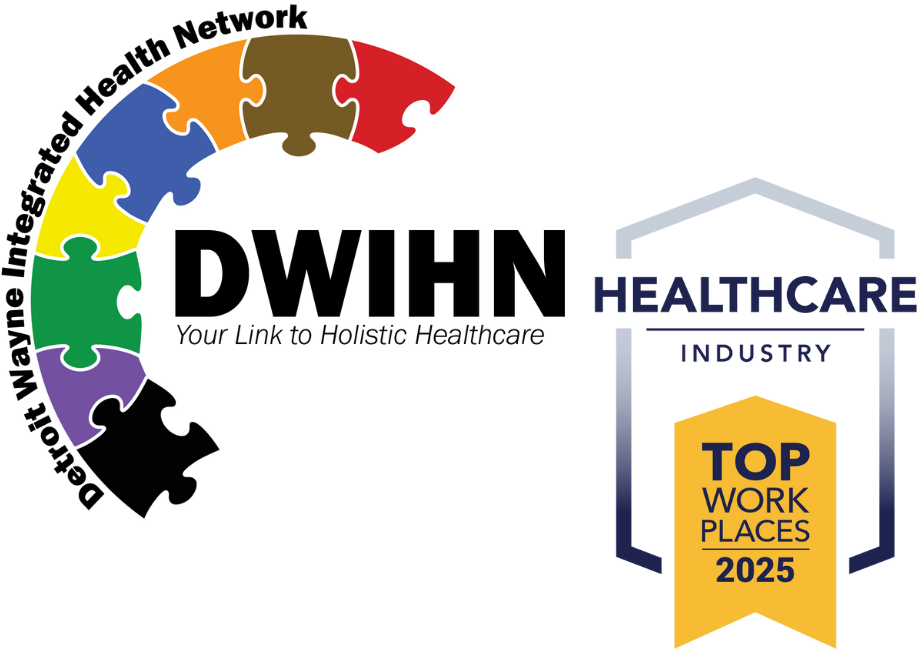Utilization Management
We are here for our members
The Utilization Management team consists of highly skilled master-level licensed clinicians who:
- Provide leadership and management of the clinical program activities by facilitating ongoing program and policy development, policy application, and maintenance of critical relationships with system stakeholders managed care organization and contracted providers.
- Direct activities related to the provision of supports and services for individuals in Detroit & Wayne County with a Serious Mental Illness (SMI), Serious Emotional Disturbance (SED), Intellectual – Developmental Disability (I-DD) and Substance Use Disorders (SUD) as well as children eligible for the Autism Spectrum Disorder (ASD) Benefit Waiver as well as the Habilitation Service Waiver (HSW) and the Children’s Waiver Program (CWP).
- Developed and revise the DWIHN’s UM Guidelines and Benefit Grid to assist with the coordination of benefits and care.
- Manage of all DWIHN utilization review clinical activities and services including fiscal, staffing, consulting, and planning.
- Assists in the implementation and coordination of quality improvement activities and initiatives.
- Provides oversight of the review process for clinical services requests that are consistent with the DWIHN Medical Necessity Criteria and/or other appropriate clinical criteria applicable to the clinical needs of consumers.
The purpose of the Utilization Management Unit is to facilitate the provision of quality, efficient behavioral health care services to consumers and providers through monitoring, evaluating, and directing processes and behaviors, which impact the delivery of services. The overall goal of utilization management is to provide oversight and monitor treatment patterns of the delivery systems to ensure maximum efficiency.
Staff performing UM functions are not given financial incentives and are not otherwise rewarded to make UM decisions to reduce the provision of care which is deemed medically necessary or to encourage decisions that result in underutilization of care or services. Instead, DWIHN, Access Center, and COPE UM staff must review the initial and continued medical necessity on an individualized basis. If it is determined that the medical necessity criteria for a specific service is not met, all efforts will be made to link the individual to the services they need.
The UM Team maintains policies and processes that provide documentation of the framework and authority under which the UM Program operates. Reviewed and updated at least annually, the policies and processes support:
- Easy and early access to appropriate treatment
- Working collaboratively with participating providers in promoting the delivery of quality care according to accepted best-practice standards and UM guidelines;
- Addressing the needs of special populations, such as children and the elderly;
- Identification of common illnesses or trends of illness;
- Identification of high-risk cases for intensive care management; and
- Screening, education, and outreach when appropriate. Objective, scientifically-based clinical criteria and treatment guidelines, in the context of provider or member supplied clinical information, guide the utilization management processes.
Participating providers are required to comply with utilization management policies and procedures and associated review processes.
Behavioral Health Care includes:
-
Behavioral health guidelines – Identify the most effective level of care for specific behavioral conditions.
-
Level of care guidelines – Assess a patient’s level of care needs in situations when a diagnosis-specific guideline does not apply.
-
Therapeutic and testing procedures – Provide specific criteria for determining when a procedure, treatment, or diagnostic test may be indicated.
-
Detailed discharge criteria – Focus on specific care elements to consider when discharging patients to a lower level of care.
-
Flexible recovery courses – Manage longer behavioral health episodes with recovery courses listed in care days for inpatient treatments and stages for outpatient treatments.
-
Alternative care planning – Select effective alternative therapies and levels of care based on the specifics of a patient’s case.
